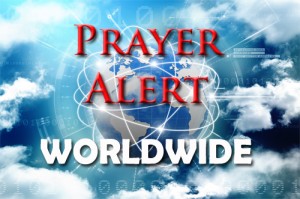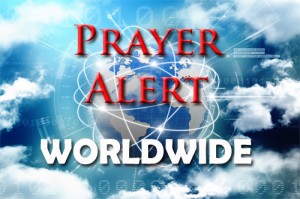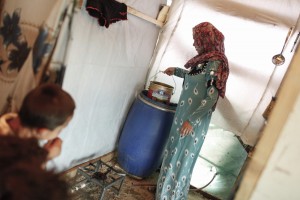
Displaying items by tag: Refugees
From Israel to Syria with love
Gush Etzion is a cluster of communities at the centre of the political controversy surrounding Jewish settlements. It supposedly consists only of right-wingers who consider all Arabs to be enemies, but there is a very different side to the community. Once a fortnight, trucks arrive to collect supplies donated by local residents. The supplies are taken north for the Amalia ‘buses of angels’ to distribute to Syrian children across the border. The activity looks like any other charity activity, but the teenagers organising it are Orthodox Jews and the recipients of the boxes are Arab refugees. The teenagers have also contacted Rabbi Shivi Froman, a resident of another Orthodox community and the founder of ‘Syrians on the Fences’ (SoF). SoF has collected over a million shekels to buy equipment for Syrian children, in collaboration with Israel Flying Aid (IFA). Froman’s late father was a leading Israeli voice for peace and reconciliation with the Arabs in the Palestinian Authority.
Iraq: Mosul civilians at serious risk
Numerous attacks, including heavy artillery and mortar fire from Iraqi forces and IS, are killing civilians in Mosul, said Human Rights Watch. They are fleeing in their thousands, with a massive spike in refugees in the last few days. The real concern among the humanitarian community is that this spike is going to continue and perhaps even increase. There is a limit at the moment inside the camps on how many people can be accommodated. Everyone is working as quickly as possible to make more space, but building an entirely new safe camp takes time. There is real worry about where all these people can stay safely. Currently 4,000 people escape Mosul on a daily basis. 30,000 Iraqis were displaced in less than a week, as US-backed Iraqi forces launched their offensive to recapture the densely populated western part of Mosul from IS.
France: child refugees and traffickers
The UK Government’s decision to refuse lone child refugees (see last week’s Prayer Alert) has been a boost to traffickers, who are ‘helping’ desperate teenagers rejected by official schemes. Labour MP Yvette Cooper, chair of the home affairs select committee, said that MPs felt misled by the premature closure of the scheme after only six months. It takes councils time to set up systems, and we are back to square one, with teenagers and children at risk of traffickers in Dunkirk. Desperation is what the traffickers want. Traffickers tell children, ‘Every route has been closed, but I can help you’. Volunteers have no hope to offer them, to make them go back to the official centres. Almost 100 under-18s believe they are eligible for transfer to the UK. Hundreds are sleeping rough (about 200 are teenagers), with no shelter and donated sleeping bags. See also the article in the British Isles section.
Syria: peace talks under way
UN-sponsored peace talks between the Syrian government and opposition began in Geneva on Thursday. The two sides will not meet face-to-face to begin with. Staffan de Mistura, the UN's special Syria envoy, said on Wednesday he was ‘not expecting a breakthrough’, though we can pray for one. The opposition insists that the fate of President Bashar al-Assad must be on the agenda, but the government refuses to discuss this. For the sake of the 300,000+ people killed since the war began, the 4.8m who have fled the country and 6.3m displaced inside Syria, ask God in His mercy to be in the midst of these negotiations and for His will to be done on earth as it is in Heaven.
Germany: integration of refugees
‘One of the most important issues of our time is how to integrate refugees into German society. Integration works best by involvement in everyday life - in a day-care centre or school, in learning a trade or in a place of work. Here the refugees can come into direct contact with the German language and culture and can also become familiar with the social norms and customs of our society. Integration into the job market however takes time; this might be because of lack of qualifications, or few opportunities for apprenticeships or vocational training. Many refugees remain in temporary accommodation for a long time, with no prospects for work or a more permanent place to live. The ready availability of social housing is an essential component of a successful integration plan: but a home of your own must be affordable not only for refugees but also for the low wage earners, the unemployed and pensioners. These also should not be forgotten! Much patience is often expected also from them. To ensure the keeping of peace and harmony in communities, the task of effective integration requires our constant prayer.’
Jesus appears to Syrian refugees
Marvin Lahoud, a 26 year-old volunteer with a Lebanese church serving Syrian refugees, was in charge of food voucher distribution. On this day, Marvin discovered that one of the refugee families returned to Syria leaving him with an extra voucher to distribute to another family.
He scanned the wait list. The first family he called—also returned to Syria. The second family didn’t answer the phone. Further constraints led Marvin to dismiss the third and fourth families from the wait list. Marvin finally decided to make his way over to the house of the fifth family.
A little boy stood at the entrance of the basement space his family called home, looked up at Marvin, and smiled. Matter-of-factly the Syrian boy said, “Come in. We were expecting you.”
Marvin looked at him—puzzled. He hadn’t told anyone he was coming; much less contacted the Muslim Syrian refugee family. How could they have known he was coming?
The young Syrian boy’s mother beckoned Marvin into their home and asked the boy to explain.
“Yesterday”, the little boy said, “I had a dream that was so vivid I thought it was real. I was walking on the shore of the sea and saw a man standing in the sea with water up to his knees. He was clothed in a bright white robe. His face shined so bright, I couldn’t see the details of his face. His hands were noticeably tender. I asked him who he was. He said, ‘I am Jesus.’ I said, ‘What do you want?’ Jesus said, ‘I want you to believe in love, have faith and keep hope.’ And Jesus continued to say, ‘Do not be afraid. Help is on the way. Tomorrow, a man will come over called Marvin and he will help you and your family.’”
And now you are here, said the mother to Marvin.
Source: Providence Magazine
Photo Credit: Rawaa, 21, a mother of three from Aleppo, draws water from a storage tank in her tent at an informal tented settlement for Syrian refugees in the Bekaa Valley, Lebanon, in July 2014. Photo by Sam Tarling for Norwegian Relief Council, posted by Directorate-General for European Civil Protection and Humanitarian Aid Operations (ECHO), via Flickr.






